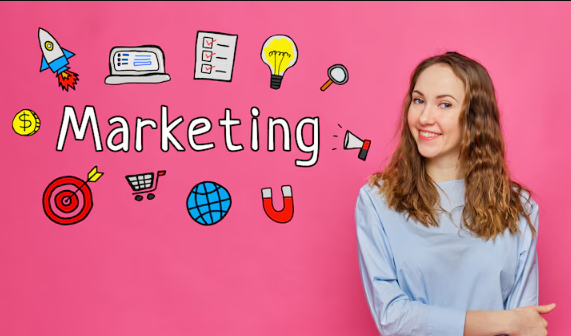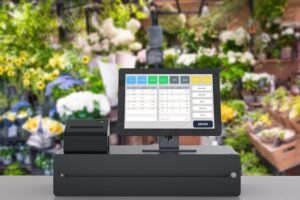The Future of AI in Digital Marketing Strategy
As a marketer navigating the ever-evolving digital landscape, you’ve likely already felt the impact of artificial intelligence (AI). It’s no...

As a marketer navigating the ever-evolving digital landscape, you’ve likely already felt the impact of artificial intelligence (AI). It’s no longer a futuristic concept—it’s an active part of the toolkit for those who strive to master digital marketing. From personalized content recommendations to predictive analytics and automated customer interactions, AI is reshaping how you reach, engage, and convert your audience.
Understanding the future of AI in digital marketing strategy isn’t just about staying current—it’s about staying ahead. In this article, you’ll explore how AI is revolutionizing the way you strategize, optimize campaigns, and build meaningful customer relationships. Whether you’re a seasoned marketer or a beginner eager to learn the ropes, embracing AI can set you apart in an increasingly competitive environment.
Why AI Matters in Your Digital Marketing Strategy
You know that modern consumers are smarter, savvier, and more connected than ever. They expect immediate, personalized experiences, and if you don’t deliver, they’ll move on to a competitor who will. This is where AI becomes your most valuable asset.
By leveraging AI, you can:
- Understand customer behavior on a deeper level
- Automate repetitive tasks, freeing up your time for strategy
- Create hyper-personalized experiences that increase engagement
- Predict future trends and customer actions
- Optimize campaigns in real time based on performance metrics
AI takes the guesswork out of marketing. With the right tools, you can make data-driven decisions that lead to higher ROI and stronger brand loyalty.
Key Areas Where AI is Transforming Digital Marketing
Personalization at Scale
One of the biggest advantages AI offers you is the ability to personalize content on a massive scale. Instead of sending generic emails or presenting the same website layout to every visitor, you can tailor experiences based on individual preferences, browsing history, and past interactions.
AI-driven recommendation engines—like the ones used by Amazon and Netflix—can help you offer personalized product suggestions, emails, or even push notifications. This level of customization not only boosts conversion rates but also enhances customer satisfaction.
Smarter Customer Segmentation
Traditional demographic segmentation is becoming obsolete. AI enables you to segment your audience based on behaviors, interests, and predictive insights. For instance, you can target users who are most likely to abandon a cart or make a repeat purchase, allowing you to tailor your messaging and offers accordingly.
By mastering segmentation through AI, you ensure your marketing efforts are more relevant, timely, and effective.
Predictive Analytics
Imagine being able to anticipate what your customers want before they even know it themselves. That’s the power of predictive analytics.
AI algorithms analyze past customer data to forecast future actions—whether that’s a likely purchase, churn, or content preference. With this knowledge, you can proactively tailor your strategies, allocate budget more efficiently, and avoid wasted efforts on low-performing campaigns.
If you’re aiming to master digital marketing, predictive analytics is a crucial area to focus on.
Automated Customer Service and Chatbots
AI-powered chatbots have transformed customer service into a 24/7 operation. They can handle routine inquiries, process orders, and even resolve simple complaints—all without human intervention.
For you, this means better resource allocation and quicker response times. Your customers get the immediate answers they expect, while your team can focus on more complex tasks. As NLP (Natural Language Processing) improves, chatbots are becoming more conversational, making customer interactions feel human and intuitive.
Content Creation and Optimization
Yes, AI can even help you create content. While it won’t replace your creative genius, tools like GPT and other AI writing assistants can help you generate blog ideas, draft outlines, or even write social media posts.
More importantly, AI can help you optimize content performance. It can analyze which headlines attract more clicks, what length your blog posts should be, or which keywords you should target to rank higher on search engines.
If you want to boost content marketing performance, integrating AI tools into your workflow is a smart move.
How AI Is Influencing Paid Advertising
Paid ads are a cornerstone of many digital marketing strategies. With AI, you can make them smarter and more efficient.
Platforms like Google Ads and Meta (formerly Facebook) already use machine learning to optimize bids, placements, and targeting. But you can go a step further by incorporating AI-driven tools that:
- Predict which ad creatives will perform best
- Automatically A/B test different versions
- Allocate budgets to high-performing channels in real time
- Identify new audience segments that weren’t on your radar
With AI on your side, your advertising budget goes further, and your ROI climbs higher.
Ethical Considerations and Human Oversight
As you integrate AI into your strategy, it’s important to remember that ethical use matters. AI systems are only as good as the data they’re trained on. Poor data or biased algorithms can lead to missteps in customer targeting or even brand-damaging experiences.
Maintain transparency with your audience. Always ensure your AI tools comply with data privacy regulations such as GDPR or CCPA. And most importantly, remember that AI should enhance, not replace, the human element in marketing.
Your empathy, creativity, and intuition are irreplaceable. Use AI to support these qualities—not to substitute them.
Preparing for an AI-Driven Future
So, how do you prepare yourself and your business for this AI-powered evolution in digital marketing?
Here are a few actionable steps:
Invest in Learning
To truly Master Digital Marketing, you need to stay ahead of the curve. Enroll in courses that focus on AI in marketing, data analytics, or marketing automation. The more you understand the tools and trends, the more strategically you can apply them.
Choose the Right Tools
There’s no shortage of AI-driven tools in the market—HubSpot, Salesforce, Jasper, ChatGPT, and SEMrush are just a few examples. Start with one area (e.g., content optimization or customer segmentation) and test how AI can improve your outcomes.
Collaborate Across Departments
AI is not just for marketing. Work closely with your IT, sales, and customer service teams to ensure a seamless implementation. Cross-functional collaboration can lead to better insights, stronger alignment, and a more cohesive customer experience.
Start Small, Scale Fast
Don’t try to overhaul your entire strategy overnight. Identify one or two areas where AI can have a quick, measurable impact. Once you see results, expand your efforts gradually.
Let AI Empower You, Not Replace You
Ultimately, AI is a powerful tool—but it’s just that, a tool. The future of digital marketing lies not in surrendering to machines but in learning how to work alongside them.
When you combine human creativity with machine precision, you create a strategy that’s not only effective but future-proof. The brands that will thrive in the years ahead are the ones that view AI as a partner, not a replacement.
If you’re ready to take your skills to the next level and embrace the future of digital marketing, now’s the time to act. Master digital marketing by integrating AI into your workflow, upskilling your team, and building campaigns that resonate more deeply with your audience.
Ready to Embrace the Future?
Don’t wait until you’re left behind. AI is already transforming the marketing world—and it’s only just getting started. If you’re not sure where to begin or need guidance on implementing an AI-powered strategy tailored to your business, Contact Us today. Our team of digital marketing experts can help you harness AI to create smarter, faster, and more impactful campaigns.
Together, we’ll chart a course into the future—where technology meets creativity and strategy meets success.




